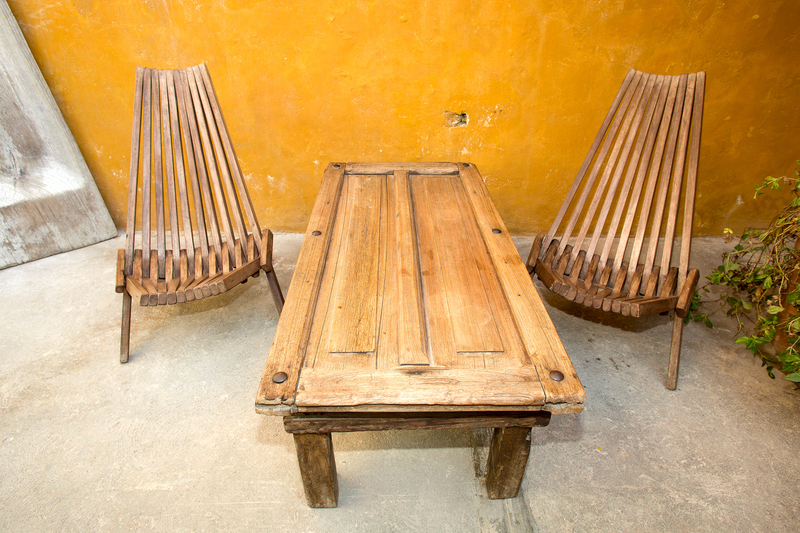Bulky Waste Items: How to Keep Disposal Prices Down
Bulky waste items such as old sofas, broken appliances, wardrobes, mattresses, and other large household objects can quickly become a headache for households and businesses alike. When it's time to clear out the clutter, many discover that disposal costs for these items can be surprisingly high. Thankfully, there are effective strategies you can use to keep bulky waste disposal prices down while staying environmentally responsible.
What Are Bulky Waste Items?
Bulky waste items are large household objects or commercial materials that cannot fit into regular bins or garbage bags. These often require special handling and collection services. Some common examples include:
- Old furniture (sofas, chairs, tables, wardrobes)
- Large appliances (refrigerators, washing machines, ovens)
- Mattresses and bed frames
- Carpets and rugs
- Garden equipment (lawn mowers, BBQ grills)
- Construction debris (bathtubs, doors, window frames)
Properly managing the disposal of these items is essential for cost efficiency, sustainability, and avoiding potential fines for improper dumping.

Why Is Bulky Waste Disposal Expensive?
Bulky item disposal costs more for several reasons:
- Special trucks and crews are needed for collection
- Processing large objects requires more labor and equipment
- Certain items need to be recycled or disposed of at specific facilities (e.g., electrical goods, mattresses)
- Landfill fees and environmental taxes can be higher for large loads
As such, understanding how disposal pricing works can help you make smarter decisions and ultimately lower your bulky waste removal expenses.
Top Strategies to Reduce Bulky Waste Disposal Costs
There are numerous practical ways to keep bulky item disposal prices down. Here are the best tips and methods:
1. Consider Reuse Before Disposal
The old adage "one man's trash is another man's treasure" is especially true when it comes to bulky waste items. Instead of paying for removal, explore options such as:
- Donating usable furniture or appliances to local charities, shelters, or thrift stores
- Posting items on online marketplaces like Facebook Marketplace, Craigslist, or Freecycle
- Offering items to friends, neighbors, or community members who may have use for them
Many organizations will even pick up certain items for free, saving you both time and money, and potentially giving your possessions a second life.
2. Break Down Items to Save Space
Some councils and private collectors charge based on the volume of waste rather than by the number of items. Disassembling large objects like bed frames, wardrobes, or sofas can significantly reduce the total volume and keep prices lower.
- Use tools (screwdrivers, saws) to take apart what you can
- Remove legs, arms, or other detachable parts from furniture
- Flatten cardboard and break down bed bases
Just remember to check disposal requirements, as some items--such as refrigerators or items with hazardous materials--may have special handling needs.
3. Share Disposal Costs with Neighbors
Pooling together with others in your building or street to schedule a joint collection can substantially reduce costs. If a specialized waste collection company charges a flat fee for a set load or per visit, dividing the cost between multiple parties maximizes value.
- Coordinate a cleanup day with neighbors or friends
- Rent a skip together and split the fee
- Contact your local council to see if community pickups are available
This approach is especially helpful in apartment complexes, shared housing, or neighborhoods with frequent move-outs.
4. Take Advantage of Council Bulky Waste Collection Services
Many local councils offer bulky item pickup either free or for a nominal charge. This is often the cheapest (and sometimes even free) way to dispose of large items, though you may need to book in advance and follow their guidelines for eligible items.
- Check your council website for scheduled collection dates and booking instructions
- Find out what items are permitted--some often exclude specific things like construction debris or white goods
- Be considerate of weight and volume limits to avoid extra charges
Regularly researching your council's services can help you catch special amnesty days and scheme changes that allow for even more cost-effective bulky waste disposal.
5. Hire a Licensed Waste Removal Service
If the council's collection service is not available or suitable, you may need to turn to a professional bulky waste pickup company. To keep costs down:
- Always compare multiple quotes from reputable, licensed operators
- Read reviews and check licensing credentials to avoid fly-tippers or unregistered services
- Ask about discounts for off-peak days or combined loads
- Sort your waste in advance--mixed or contaminated loads often incur higher fees
While this option typically costs more than council pickups, it can be worthwhile for convenience or if you have items that aren't covered by municipal services.
6. Transport Items Directly to the Recycling Center
For those able and willing, self-delivery of bulky waste to a local recycling or civic amenity site is often the cheapest way to dispose of large items. Many centers allow residents to drop off certain items for free or a nominal fee--provided you have the means to transport them safely.
- Check opening hours and accepted items in advance
- Bring proof of residence (ID or utility bill) as some centers only accept local households
- Follow sorting rules (e.g., separate wood from metal or electronics from general waste)
This DIY option is especially attractive if you have access to a van or trailer, or if you only have a few items to dispose of.
7. Avoid "Too Good to Be True" Offers
If a waste removal service offers unusually low prices and cannot provide a waste carrier license, it is often a red flag. These companies may illegally dump waste, potentially resulting in fines and penalties for you if items are traced back to your home or business.
Always ensure your chosen company is fully compliant with local regulations; it's the safest way to guarantee your bulky waste removal costs won't end up being much higher due to unforeseen fines.
Long-Term Solutions for Managing Bulky Waste
The best way to keep bulky waste disposal prices low is to produce less bulky waste in the first place. Consider these proactive approaches:
- Buy durable & repairable goods: Invest in higher-quality furniture and appliances that last longer and can be repaired instead of replaced.
- Plan for modularity: Choose items designed to be safely disassembled and recycled at end of life.
- Participate in take-back programs: Many manufacturers and retailers now offer removal and recycling of old products when you buy new ones--sometimes free of charge.
- Stay organized: Regularly declutter to avoid a situation where you need to dispose of many large items at once.
Being thoughtful about purchases and disposal habits helps the environment and keeps future bulky item disposal costs to a minimum.
What Not to Do With Bulky Items
When trying to save money on large item disposal, beware of these common mistakes:
- Fly tipping (illegal dumping): Fines for fly tipping are steep and enforcement is increasing.
- Abandoning items on the curb outside of allowed collection days can result in fines from your local authority.
- Burning or unsafe dismantling: Many items contain chemicals, foams, or treatments that are hazardous if burned or improperly handled.
- Placing items in standard bins: Overfilled bins or bins containing prohibited bulky waste may not be collected and could lead to fees.
Adhering to proper bulky item disposal methods not only keeps your neighborhood clean, but also helps protect you from costly penalties.
FAQs About Bulky Waste and Affordable Disposal
How often can I use council bulky waste collection?
Frequency for council pickups varies by location; some offer several collections per year, while others may restrict to once every few months. Check your local authority's guidelines.
Is it cheaper to hire a skip or use a man-and-van service for bulky items?
It depends on the quantity and type of waste. For just a few items, a man-and-van service is typically more affordable. However, for whole-house clearances, a skip hire shared with others can be cost-effective.
Are there special rules for disposing of appliances or electronics?
Yes, white goods and electronics are subject to environmental regulations and may need to be recycled at designated centers. Some retailers offer free or subsidized collection for old appliances when you buy new.
How do I know if a waste removal company is legal?
Ask for their waste carrier license number and verify this online with your country's environmental agency (such as the Environment Agency in the UK).
Can I claim bulky waste disposal as a tax-deductible expense?
For businesses, waste disposal fees can often be claimed as allowable expenses. For private households, there are generally no direct tax deductions but check with a qualified advisor.

Environmental Considerations: Choosing Eco-Friendly Disposal
Disposing of large items responsibly isn't just about saving money--it's about minimizing environmental impact. Here's how you can make green choices:
- Prioritize reuse and donation over landfill
- Use recycling centers for items containing metals, electronics, or hazardous parts
- Ask removal services about their recycling rates and landfill diversion policies
- Choose companies compliant with eco standards and registered with environmental agencies
Conclusion: Smart Bulky Waste Management Keeps Costs Down
It's clear that bulky item disposal doesn't have to be prohibitively expensive. With the right strategies--from dismantling items, utilizing council services, and sharing collection costs, to prioritizing reuse and recycling--you can effectively keep disposal prices down and reduce your environmental impact. Remember, planning ahead and being proactive are the keys to managing bulky waste affordably and responsibly.
Taking a little extra time to research your bulky waste removal options not only saves money, but also benefits your community and the planet as a whole.